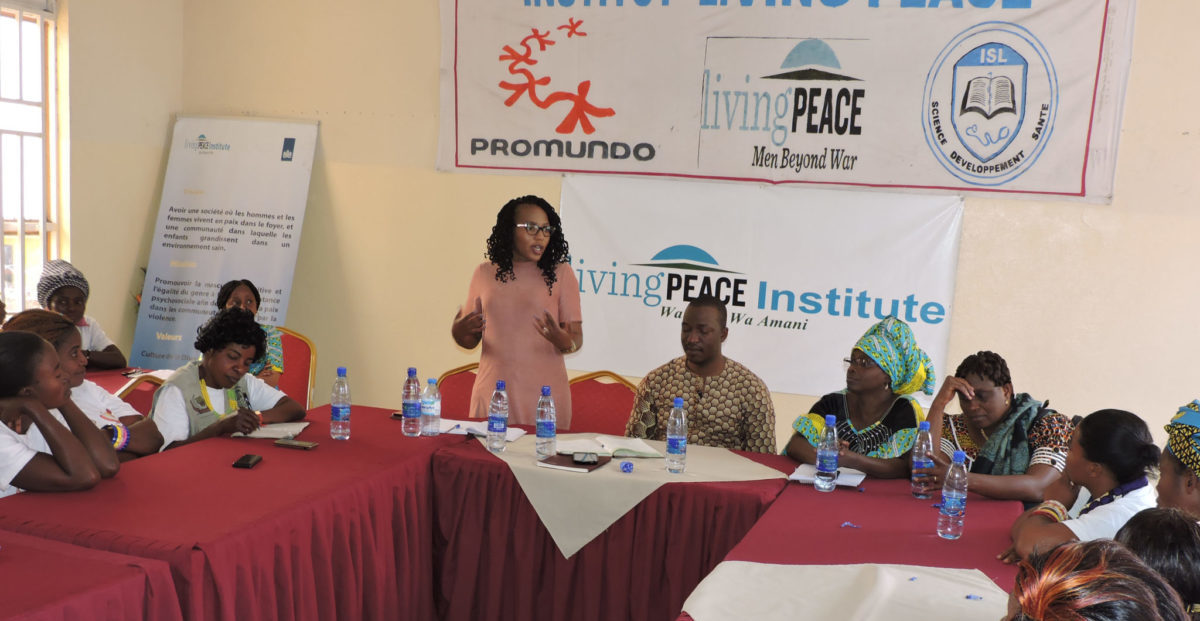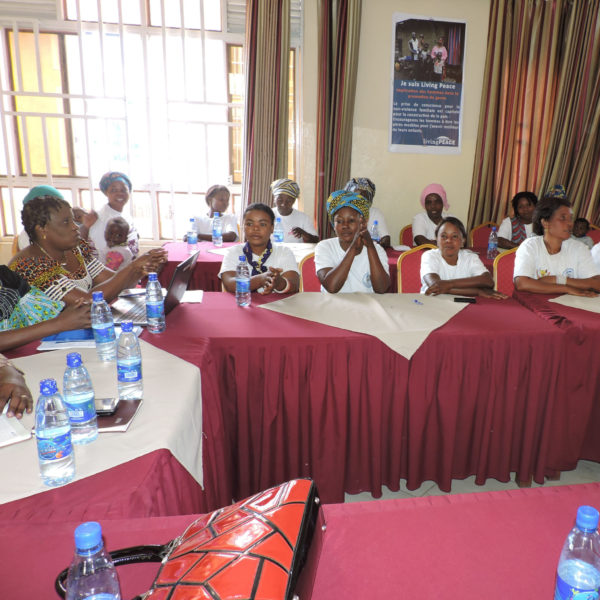
The Living Peace Institute (LPI), Equimundo’s strategic partner in Democratic Republic of the Congo (DRC), celebrated International Women’s Day this year with a daylong dialogue on “Gender and Women’s Economic Empowerment.”
LPI, an organization that works to promote gender equality and prevent gender-based violence in DRC, planned the dialogue around the day’s 2018 national theme, “Investing in the Productive Power of Rural Women: Priority for DRC.”
The wives of civilian, military, and police-force participants of the Living Peace groups organized by LPI convened for the event on March 13, 2018 at the institute’s Goma office.
Over 40 participants contributed to guided discussions about the genesis of the Living Peace program, its mission and objectives, the history of International Women’s Day, ideas about gender and gender norms, positive changes to relationship and household dynamics, women’s economic empowerment, and women’s equality more broadly:
- Aloys Mahwa, LPI’s country director, opened the event with remarks about the history, mission, and goals of the institute.
- Valérie Waso, a representative of Goma’s Gender Division, spoke about the history of International Women’s Day, its 2018 theme, and how gender norms can impact women’s economic empowerment.
- Charlotte Riziki, a trainer at LPI, spoke about positive relationship dynamics, couple communication, and the process of change toward more gender-equitable attitudes and behaviors.
- Prisca Ntabaza, a representative of the Dutch Embassy in Kigali, spoke to participants, who gave her their recommendations related to sensitization of family planning and improving women’s literacy in the country. The wives of both police officers and civilians suggested creating women’s Living Peace groups in which women are directly involved in the promotion of gender equality and able to follow the process of positive change in their husbands’ attitudes and behaviors.
Participants reported that they benefited from the day’s discussions and its exploration of various themes related to women’s empowerment, and they expressed commitment to continuing their work toward positive, gender-equitable change.
